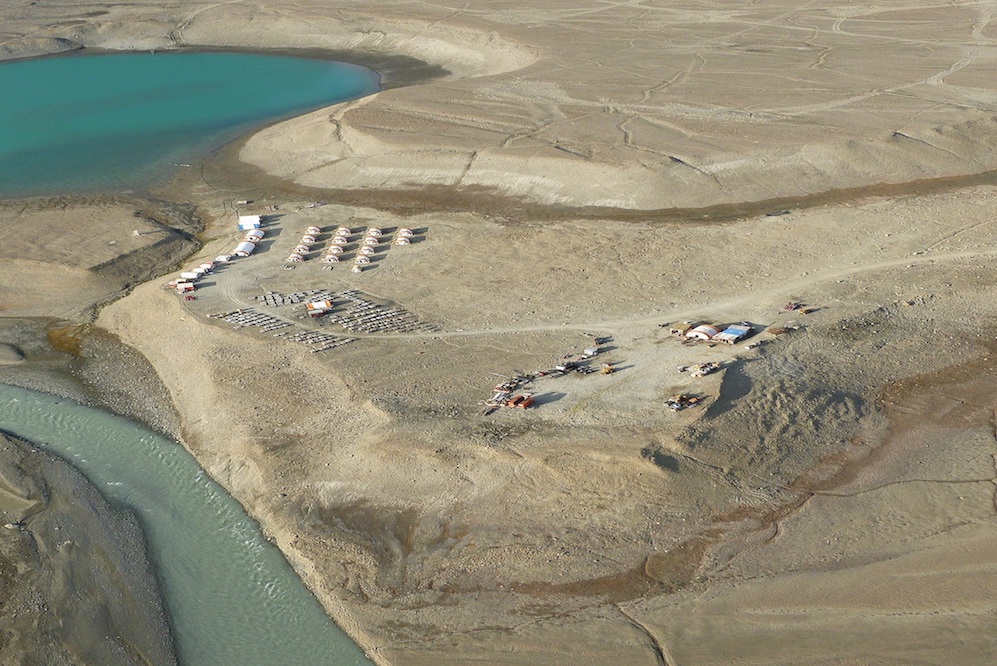A US agency is ready to fund a major Greenland zinc mine
Funding is only one challenge for owners of permit to operate mine in northern Greenland.

Australia-based Ironbark Zinc has received word that a U.S. federal agency responsible for promoting American exports is interested in financing nearly half of what could become one of Greenland’s largest mines.
The U.S. Export-Import Bank (EXIM), which is the official U.S. export-credit agency, says it is prepared to loan $216 million to Ironbark Zinc to develop the Citronen zinc and lead mine in Greenland’s far northeast. The loan would be in support of “U.S. content” — activities that benefit the U.S. — in the $500 million project that Greenland officials describe as a “flagship” of the country’s fledgling mining industry.
“Over the past six months, Ironbark has engaged with EXIM representatives to better understand each other’s business and to promote the alignment of our respective strategic goals, steadily building the foundations for a long-term relationship,” Michael Jardine, Ironbark Zinc’s managing director, said in a statement.
[Shipping from northern Greenlandic mine feasible, owner says]
EXIM’s expression of interest is not an official commitment that it will issue a loan, but Ironbark Zinc believes it will act as a seal of approval that will help it obtain the remaining funding needed to establish operations.
“The company could not ask for a better potential counterparty than EXIM,” Jardine said.
EXIM’s announcement comes at a time when Washington is increasingly looking to secure supplies of strategic metals from suppliers in friendly countries.
In October, President Donald Trump issued an executive order declaring America’s reliance on foreign suppliers for 31 of 35 critical minerals a “national emergency.” The order called on federal agencies to come up with ways to increase domestic production and seek ways to ensure that imports could not be disrupted by China.
[US, Greenland reach agreement on Thule Air Base contract, long a source of dispute]
Zinc is not on the latest list of “critical” metals, but it is considered to be strategic because it is used to galvanize steel and other metals, and the U.S. imports more than 80 percent of the zinc it uses each year.
The president’s instructions have already led some agencies to begin looking into ways to get involved with mining projects in Greenland that would produce critical metals, such as rare earths.
Ironbark Zinc, which is partnering with China Nonferrous Mining Corporation, a nationally controlled firm, was granted a 30-year license in 2016 to operate at Citronen. At the time, it said it had tentative agreements with firms that had expressed an interest in purchasing the mine’s ore when it began producing in 2020.
In the meantime, the price of zinc has fallen from its 2017 high as world supply has grown. This year, the price has risen and Ironbark Zinc expects to release a new feasibility study next year that will again lay out the case for the mine’s value.
[A controversial Greenland mine passes a key regulatory hurdle, and heads for public comment]
Yet even with a rising price and enough deposits to keep the mine operational for at least 14 years, it must still answer questions about how it intends to transport 300,000 tons of ore from the mine during the six weeks that ships can sail in and out of Citronen Fjord, located at 83 degrees North.
In August 2018, the firm reported being able to sail to the opening of the fjord with “relative ease.” However, despite reporting ice-free waters in the fjord, the ice-classed bulk carrier hired in to sail to the project site turned back without attempting to enter the fjord.
Despite the delays, Citronen is on track to become Greenland’s first “large-scale” mining project, a term applied to operations estimated to cost more than 5 billion kroner ($780 million) to establish and requiring more employees than are available nationally. Some 500 people are expected to be hired to work at Citronen.
Even though it will be permitted to hire the foreign labor it requires, Ironbark Zinc is required to employ Greenlandic labour to the extent possible, as well as to fund job-training, according to its licensing agreement. It is expected that 60 people from Greenland will be hired to build the mine.